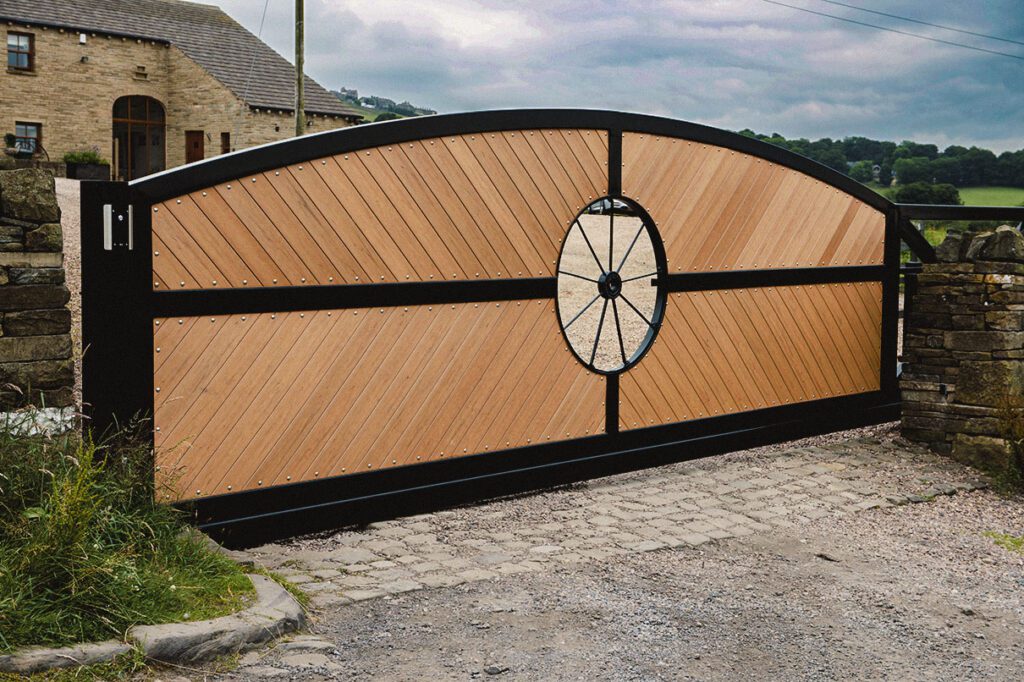When it comes to choosing the perfect garden gate, homeowners today are increasingly turning to composite materials. Composite garden gates offer a unique blend of durability, aesthetics, and low maintenance, making them an excellent choice for anyone looking to enhance the functionality and appeal of their outdoor spaces. In this article, we’ll explore what composite garden gates are, how they are made, and why they are becoming a popular alternative to traditional wooden and metal gates. You can Get more Information about composite garden gates.
What Are Composite Garden Gates?
Composite garden gates are made from a combination of materials, typically including wood fibers, plastic, and sometimes metal. These materials are fused together under high pressure to create a sturdy, weather-resistant product that mimics the appearance of natural wood but offers superior performance. The result is a gate that combines the best qualities of different materials, providing a balance between strength, aesthetic appeal, and longevity.
The Benefits of Composite Garden Gates
One of the primary reasons homeowners opt for composite garden gates is their durability. Unlike traditional wooden gates, which can warp, rot, or split over time, composite gates are designed to withstand harsh weather conditions without deteriorating. This makes them ideal for areas with extreme temperatures, heavy rainfall, or strong sunlight.
In addition to their durability, composite garden gates require minimal maintenance. Traditional wooden gates often need regular staining, painting, or sealing to keep them looking their best. In contrast, composite gates maintain their appearance with little more than an occasional wash with soap and water. This low-maintenance feature is especially appealing to busy homeowners who want the beauty of a wood-like gate without the upkeep.
Another significant advantage of composite garden gates is their aesthetic versatility. These gates are available in a wide range of colors, textures, and finishes, allowing homeowners to choose a style that perfectly complements their garden and home exterior. Whether you prefer the rustic look of weathered wood, the sleek appearance of a modern design, or something in between, there is a composite garden gate to suit your taste.
Composite garden gates are also an environmentally friendly option. Many composite materials are made from recycled plastics and wood byproducts, reducing the demand for new raw materials and helping to minimize waste. By choosing a composite gate, you’re not only enhancing your property’s curb appeal but also contributing to a more sustainable environment.
Why Choose Composite Over Traditional Materials?
While traditional wooden and metal gates have their own appeal, composite garden gates offer a range of benefits that make them a more practical choice for many homeowners. Wooden gates, while beautiful, require regular maintenance and are susceptible to damage from the elements. Metal gates, on the other hand, can rust and may need repainting or treatment over time.
Composite gates, however, are engineered to resist these common issues. They do not rot, warp, or crack like wood, and they do not rust like metal. This durability means that composite gates can provide a longer-lasting solution for your garden, saving you time and money on repairs and replacements in the long run.
Conclusion
Composite garden gates represent the next generation of outdoor design, offering a perfect combination of durability, low maintenance, and aesthetic flexibility. As more homeowners seek to create beautiful, functional outdoor spaces, the demand for these innovative gates continues to grow. Whether you’re looking to replace an old gate or install a new one, considering a composite option could be a smart investment for your home.
With their numerous benefits and growing popularity, it’s clear that composite garden gates are more than just a trend—they’re a smart, sustainable choice for any modern garden.
